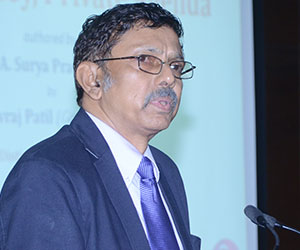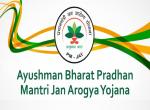Congress Vice-President Rahul Gandhi’s interview to Times Now is certainly the most talked about interview broadcast by an Indian television channel in recent times, but the general consensus appears to be that Gandhi botched up the best opportunity that came his way to relate to millions of voters in the run-up to the Lok Sabha poll, which is due in May.
It may take many months and many more interviews for Gandhi to undo the damage, if ever that is possible, but that will put him clearly out of the reckoning for the mega electoral battle of 2014, although the Congress Party remains firmly committed to the idea of projecting him as its candidate for Prime Ministership.
It is indeed unprecedented for a news channel to devote close to 90 minutes for an interview. Few media platforms around the world would offer such time and space to a political leader and this is all the more reason for the disappointment among his supporters for having blown the chance to connect with the people. Thus, far from emerging as the worthy challenger to the formidable Bharatiya Janata Party nominee for Prime Ministership, most commentators agree that Gandhi appeared to be clumsy, lacking in confidence, unprepared, repetitive and out-of-depth on current political issues. Gandhi seemed to display his inadequacies for the top job and signaling his eagerness to run away from the battle. In short, what came through in his much publicized first television interview was his unwillingness to confront the truth (on the anti-Sikh riots and on issues of corruption), his lack of commitment to the idea of ushering in a moral and ethical framework for politics (when asked about cleaning up the system of party funding) and the lack of courage to change the rotten system, although he perpetually offers lip sympathy to this idea.
This interview comes within weeks of the All India Congress Committee session in New Delhi in which he declined to pick up the gauntlet and allow his party to anoint him its Prime Ministerial candidate.
Ever since the BJP anointed Narendra Modi as its Prime Ministerial candidate last September, Congress leaders have tied themselves in knots whenever they were confronted with the question as to whether Rahul Gandhi would be their candidate for the top office. Since every opinion poll put Modi way ahead of Gandhi or anybody else in the Congress Party, Congress leaders were afraid of pitting their Vice-President against Modi and therefore began offering unconvincing explanations for the same. They argued that India did not have a presidential form of government and therefore a Lok Sabha election cannot be a contest between individuals. They said the Congress was opposed to the personality cult and that it did not ride on the shoulders of one individual. This argument seemed laughable, coming from a party that sought votes initially in the name of Jawaharlal Nehru and thereafter in the name of Indira Gandhi and Rajiv Gandhi and even today remains solely anchored to the Nehru-Gandhi family. Therefore, nobody was willing to buy the argument that it did not encourage personality cult and that it banked on its long history and collective leadership.
Party leaders also offered the spurious argument that in the Congress party, the Prime Ministerial candidate was never announced ahead of the polls and that the Prime Ministerial was elected by the Congress parliamentary party. This may be technically correct but has no merit. Indira Gandhi was the incumbent Prime Minister when she opted for early Lok Sabha elections in 1971 and Rajiv Gandhi was the incumbent Prime Minister when parliament elections were held after Indira Gandhi’s assassination in 1984. Therefore, on both occasions there was never any need to state the obvious – that they would head the government after elections. Similarly, Indira Gandhi was the unchallenged leader of her party at the time of the Lok Sabha election in December, 1980.
However, strangely, after the Congress party received a big drubbing in the recent state assembly elections, members of the Congress Party changed their tune and began demanding that Mr. Gandhi be anointed the Prime Ministerial candidate. This clamour for Rahul as PM reverberated often during the AICC session at Talkatora Stadium a fortnight ago. Surprisingly, leaders of the Congress Party who were promoting such sycophancy forget all the arguments they were advancing some time ago against making Rahul Gandhi the PM candidate.
The change in tune was prompted by the emergence of the Aam Aadmi Party and the attraction that it holds for urban youth in the country. Congress members feel that Gandhi is projected as the PM candidate, it will be a major attraction for the youth and the young and new voters will flock to the party.
Members of the Congress Party want to make this tactical change because 2014 is unlike 1971, 1980 or 1984. This Lok Sabha election is a different ball game. The incumbent Prime Minister has declared that he will not seek office again. The BJP has fielded Narendra Modi, a man who is seen as a decisive leader, for Prime Ministership and even the Aam Aadmi Party is projecting Arvind Kejriwal for that office.
A majority of Congress workers believe that in the changed circumstances, Rahul Gandhi must accept the challenge. However, the Nehru-Gandhi dynasty thinks differently. They know that the Congress Party will be routed in the coming election and members of this family never want to accept responsibilities that will expose their limitations. Senior leaders of the party who form a kind of security ring around members of this family, also try to shield the Nehru-Gandhis from criticism when the party performs poorly. That is why, although Rahul Gandhi lead the campaign in Bihar and Uttar Pradesh in the last round of assembly elections, Congress leaders were quick to blame the party’s dismal performance on other factors and state leaders and even claim that Gandhi’s engagement with the elections was only minimal.
Rahul Gandhi’s electoral record is dismal. He has failed to enthuse voters across the country. The party has failed miserably despite his vigorous campaign in Uttar Pradesh, Bihar, Rajasthan, Madhya Pradesh and Chhattisgarh. The biggest blow has been in the Nehru-Gandhi family’s pocket borough – the Lok Sabha constituencies of Amethi, Rae Bareli and Sultanpur. The party won just two assembly seats in the last assembly election. In the few states where the party has done well, the reasons lie elsewhere. In the Karnataka assembly election, the Congress won a majority last year because of the split in the BJP.
All this has only added to Rahul Gandhi’s woes. He continues to have a poor rating among the electorate because of a variety of reasons. The first reason is his lack of courage to take a strong line on any issue, be it corruption, women’s safety or national security. Following the Nirbhaya incident in December, 2012 when the entire country was demanding a strong anti-rape law, Gandhi virtually went underground. Nobody knew where he was and what his views were. Similarly, when Uttarakhand was struck by flash floods, he was holidaying in Europe. His reluctance to take a strong stand against corruption is now well-known. Although there has been a clamour for a strong anti-corruption law since April, 2011, Rahul Gandhi has generally ducked the issue or come up with silly actions or comments. He was ridiculed by people for the absurd manner in which he tore up the ordinance proposed by the Manmohan Singh government to give relief to tainted MPs and MLAs.
Another reason why Rahul Gandhi’s ratings are low is because of his inconsistency on every major issue. He once declared that corruption was a very complex issue and that there were no easy solutions. He is also given to making inane statements. He once told an interviewer that he could have become Prime Minister at the age of 25, but he declined because he “did not want to shout at his seniors”! On another occasion he claimed that the Babri structure would never have come down if a member of his family was the Prime Minister. He however could not explain how close to 3000 Sikhs were killed in a barbaric pogrom when his father was Prime Minister. Last year, when he was appointed Vice-President of his party, he said his mother told him power was like poison. If that be so, why do the Nehru-Gandhis take copious doses of it? Also, if that be so, why did he accept the office of party Vice-President? Prior to that, while addressing the youth in Mumbai, he claimed that most politicians came from privileged political families, like himself, and that he would like to change that. But, today, he is the one calling the shots in the Congress Party and recently, he has appointed Sachin Pilot as President of the Rajasthan Congress Party. Similarly, it was Jyotiraditya Scindia who led the party’s campaign in Madhya Pradesh in the recent assembly election. All this only betrays a confused mind which does not know which way to go.
After hearing these statements, the people have realized that the words uttered by him have no meaning whatsoever. It is just vacuous prose meant to evoke praise from sycophants in the party. Also, people have realized that he is maladjusted to the democratic process and he often speaks like the scion of a royal family and this has put off a lot of people. Rahul’s failure to bring in the votes has resulted in growing pressure within the party to bring Priyanka Vadra into the campaign. She is seen as having much more charisma and the ability to put up a good fight.
The recent AICC session must be viewed in this background. The message from the AICC session is loud and clear – that Rahul Gandhi is firmly in the saddle as the leader of the party. But, he is reluctant to be anointed the Prime Ministerial candidate. Mr. Gandhi delivered a hard hitting speech at the AICC to enthuse party workers. Much effort went into that speech, but his reluctance to be named the PM candidate, citing constitutional reasons was unconvincing. Since Rahul Gandhi has his own team and he will be spearheading the party’s campaign in 2014, his opposition to his projection as the party’s Prime Ministerial candidate despite such a loud clamour by members of his party, will be seen as cowardice. His reluctance to pick up the gauntlet reminds one of Uttara Kumara, that character in the Mahabharata who keeps threatening the enemy verbally within his palace precincts, but runs away from the battle field when he sees the strong line-up of the enemy.
He obviously wants to duck this election so that he is not blamed for the party’s debacle and await better days, may be in 2019. The talk that Rahul is looking at 2019 and not 2014 was started by sycophants in the party soon after Narendra Modi’s anointment as the BJP’s PM candidate. Actually, these sycophants began working towards non-projection of Rahul Gandhi as PM candidate last September itself.
Gandhi has offered many explanations at the AICC as to why he is unready for the challenge. He offered similar reasons in the television interview as well. He claimed that MPs elect the PM and the Constitution demands this. But, none of this will wash. The people are wise enough to know the truth. Gandhi’s decision to shy away from a direct contest with Narendra Modi is only the latest example of his lack of courage. This will remain his single biggest failing and prevent him from emerging as a popular leader.
Published Date: 13th February 2014, Image source: http://whennoodlesdream.files.wordpress.com










Post new comment